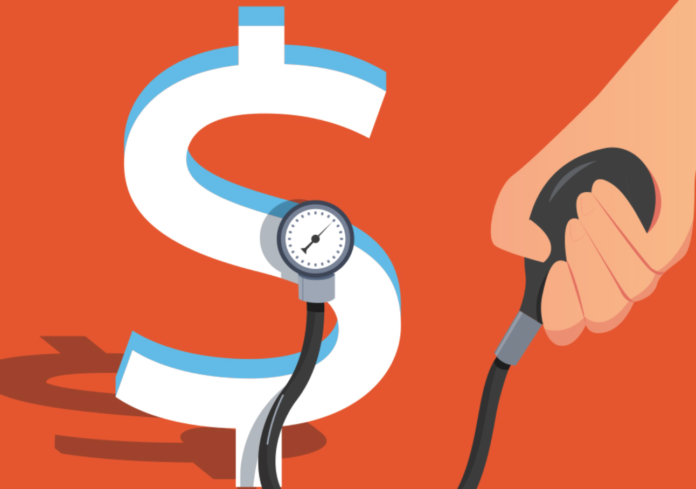Minister of Health Andrew Little claimed that his recently announced health restructuring was bold. But it was only bold in the sense that whiteboard warriors are bold. Sitting behind this embellished claim is the unacknowledged view that structural change drives health system improvement.
This conflicts with long experience that first, it doesn’t and second, sustained health system improvement is generated by cultural or process change. I say this in the context of the Minister’s intention to abolish district health boards by July 2022.
Social determinants of health
A further consequence of this misplaced belief in structural change is the bipartisan political failure to address the biggest driver of healthcare demand and costs; social determinants of health that are external to the health system. These determinants are the circumstances in the environments in which people are born, grow up, live, learn, work and age. They include:
- housing, transportation and neighbourhoods
- racism, discrimination and violence
- education, job opportunities and income
- access to nutritious foods and physical activity opportunities
- polluted air and water
- language and literacy skills.
All these factors can affect health, wellbeing and quality of life. Social determinants lead to health inequities which usually stem from avoidable structural problems in communities. If, for example, people can’t afford healthy foods, they are less likely to have good nutrition. This can increase their risk of medical conditions such as heart disease, diabetes and obesity. Promoting healthy choices won’t eliminate this barrier. Improving income support for those dependent on benefits is not the solution but it is a key ingredient in the recipe for solution and there won’t be a solution for those affected without it.
Income support system
In May 2018 the Government established the Welfare Expert Advisory Group (WEAG) to advise them on the future of New Zealand’s social security system. Its report (Wakamana Tāngata – Restoring Dignity to Social Security in New Zealand; http://www.weag.govt.nz/weag-report/) was completed in February 2019.
The review unequivocally concluded that fundamental change is needed to ensure that the country has a social security system that is fair and accessible for everyone who needs support, thus ensuring a better future for all New Zealanders. In using the term ‘iron triangle’ WEAG described the three main objectives of an income support system as:
- reduce poverty;
- ensure there are incentives to work; and
- provide support at a sustainable cost to government.
These led to trade-offs over the short term which became more nuanced over the longer term as the gains of reducing poverty start to materialise including better health, higher educational attainment, and less crime. In other words, the longer-term costs of doing nothing (or little) are considerably larger than large short-term direct fiscal costs of reducing poverty.
Benefit levels
In respect of benefit levels WEAG recommended that the main benefits by between 12% and 47% on 2019 levels. It also recommended indexing benefit levels.
Overwhelmingly the Government has ignored the recommendations and, particularly galling to those who wrote the report, their recommended forward-looking principles that the social security system should be based on. The Government has indexed benefit levels to the consumer price index (this is scheduled to change to wage increase levels in the way that government superannuation is indexed).
A year ago Government increased benefit levels by $25 per week. This was welcome but only went a short way to meeting WEAG’s recommendations. Making the situation worse has been exponential increases in housing prices and rents. In its deliberations WEAG understandably struggled to get a handle on the unpredictability of housing and rental prices but probably wouldn’t have anticipated how these subsequently unfolded thereby negatively affecting last year’s benefit increases.
What government should do
It will be important that the Government’s Budget on 20 May adopts these expert recommendations on benefit levels in full. Failure to do this will demonstrate a lack of across-the-board commitment to reduce the impact of external social determinants of health that both make well people sick and sick people sicker as well as putting extreme pressure on the health system and the health professionals working in it.
Government should also commit itself to making the living wage a statutory requirement. This would replace the current $20 per hour minimum wage with a monstrously high $22.10 per hour (increasing to $22.75 on 1 September). As for those on benefits, recipients of this improvement would be much more like to spend the extra income on essentials than those on incomes that allow them to save.
Increasing benefit levels in line with the advice of the Government’s expert advisory group and making the living wage legally enforceable would achieve much more for the healthcare of New Zealanders, the performance of the health system, and the domestic economy than any structural change forced on the health system by Health Minister Andrew Little and his business consultant whiteboard warriors.
Ian Powell was Executive Director of the Association of Salaried Medical Specialists, the professional union representing senior doctors and dentists in New Zealand, for over 30 years, until December 2019. He is now a health systems, labour market, and political commentator living in the small river estuary community of Otaihanga (the place by the tide). First published at Otaihanga Second Opinion.






Reining in the money-making GP medical practices in some way would be good too. For so many basic income working people the cost of going to the doctor is outrageous.
Ian Powell: “Andrew Little claimed that his recently announced health restructuring was bold. But it was only bold in the sense that whiteboard warriors are bold.”
I completely agree. It’s difficult to imagine a proposal less likely to bring about improvements.
The DHB model is what NZ needs. But it needs a bucket load more funding than it’s currently getting. I note this piece recently:
https://i.stuff.co.nz/national/health/125152531/health-sector-needs-nearly-222-billion-just-to-stand-still
So. Instead of properly funding the health system, and getting rid of the neoliberal vestiges, Little proposes the NHS model, which has manifestly failed in the UK. Our GP rolled her eyes at his announcement.
“…the bipartisan political failure to address the biggest driver of healthcare demand and costs; social determinants of health that are external to the health system.”
Exactly. And while raising benefit levels by the amount proposed by the welfare working group won’t fix all of the problems plaguing the poorest part of NZ society, it’d go a considerable way to ameliorating them. And the health system would experience flow-on benefits.
The proposed Maori Health Authority is straight out of He Puapua, as we now know. And it will fail, because it’s apparently predicated on the notion that poor Maori health stats result from that lazy substitute for proper evidence: “racism” in the health services.
This really irritates me. Painting the system, and health-care workers, with that invidious characterisation is pointless and offensive. The reasons for poor Maori health stats are exactly those you point out in this article. Nothing whatever to do with racism.
Were the government serious about fixing both the problems of the health system and the dire situation of the poorest in this society, it’d desist from cockamamie health sector reorganisations and put the massive funding that’s urgently needed into both areas.
Will this happen? Lord: was that a pig that just went overhead?
Comments are closed.